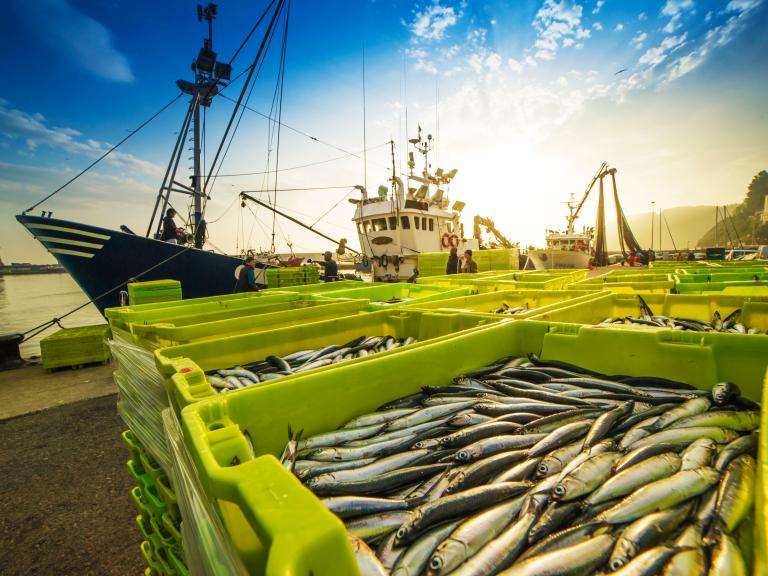-
Last updated on

Park rangers on patrol in the gorilla zone in Virunga Park (Congo). © VNP
It is no secret that the world's biodiversity is suffering. Pollution, deforestation, climate disruption, loss of suitable habitat, rampant exotic species, overfishing, etc. Reasons abound that make it difficult for animal and plant species to survive.

Environmental crime
Add to that the fact that some, mainly protected plants and animals make a lot of money. These include tropical timber, bushmeat (chimpanzees and gorillas, among others) and ivory (elephants). Consequently, sophisticated networks have emerged to trade in these illegal products.
Such environmental crime not only affects biodiversity, but also undermines security. It may even upset the geopolitical balance in regions such as Central Africa and exacerbate climate disruption. In addition, the criminal gangs are robbing local people of their natural resources.
False certificates
There is often corruption involved that lends a hand to poaching and illegal trade. Staff can be bribed to issue fake certificates. As a result, illegal products are falsely stamped 'good to trade', thus getting through customs smoothly. Corrupt individuals can also ensure that criminal acts are barely investigated or prosecuted.
In order to address the problem, Belgium has invested 2 million euros into a programme by the United Nations Office on Drugs and Crime (UNODC). Goal: To counter corruption linked to the illegal trade in forest products and wildlife places like the DR Congo, Uganda and Cameroon. In Congo, there is a focus on the Virunga and Garamba National Parks.

Gorillas are coveted as bushmeat. © VNP
Proud of their job
The programme aims to support the relevant authorities in tackling corruption and environmental crime more vigorously, including through training. Guides such as an 'integrity guide for wildlife management agencies' and a guide for addressing forestry corruption are also being developed. Employees should be proud of their jobs, thus becoming less susceptible to bribery.
It is also important to gain a better understanding of the smuggling routes and to properly understand the financial aspects of environmental crime. This should allow for more targeted actions to prevent the illegal practices. The relevant authorities should also be able to impose greater sanctions, such as denying visas to members of criminal gangs. All things that should discourage potential criminals and corrupt players.
Commitment to prevention
Such training and studies are necessary, because the wildlife and forest management authorities originally had only nature conservation in mind. They were totally unequipped to deal with organised crime and the corruption associated with it.
Moreover, it is not enough to intercept, for example, ivory or tropical timber – because, by then, the harm has been done: the tree has been felled, the elephant killed. It comes down to preventing criminal gangs from succeeding in their illegal practices. This is exactly what the programme is focusing on.
SDG15 and SDG16
Belgium is contributing to the Sustainable Development Goals (SDGs) with the programme. For example, SDG15.7 states that urgent action is needed to combat poaching and the trafficking of protected plant and animal species. SDG15.5 talks more generally about reducing the degradation of natural habitats and the loss of biodiversity.
But it also supports SDG16 – peace, justice and strong institutions. SDG16.5 explicitly articulates that corruption and bribery in all its forms must be substantially curtailed.
Only globally
Elsewhere, Belgium is supporting other UNODC programs on corruption, including in the Sahel and Central Africa. Our country is also supporting the 'Extractive Industries Transparency Initiative' (EITI), which aims to make financial flows from mining (oil, gas, minerals) more transparent. Goal: Less corruption and greater benefit for local people. Through the Kimberley Process, we are aiming for conflict-free diamonds.
Responsible management of natural resources and sustainable protection of the environment are a priority in Belgian foreign policy as it is. Belgium will therefore continue to devote itself to an effective international policy for combatting environmental crime. Because only through international collaboration can we formulate the solutions for containing this scourge that affects us all.
More on Planet

Harmful fisheries subsidies are curbed
In June 2022, the World Trade Organization (WTO) reached a partial agreement to end harmful fisheries subsidies, a successful in...

Floriade Expo 2022: get inspiration for the green city of the future
In Almere (the Netherlands), you can find tons of inspiration from all over the world for a sustainable, green future. Belgium i...

Land restoration, more than desperately needed
From 9 to 20 May, Ivory Coast is set to host the 15th Conference of the Parties to the United Nations Convention to Combat Deser...
